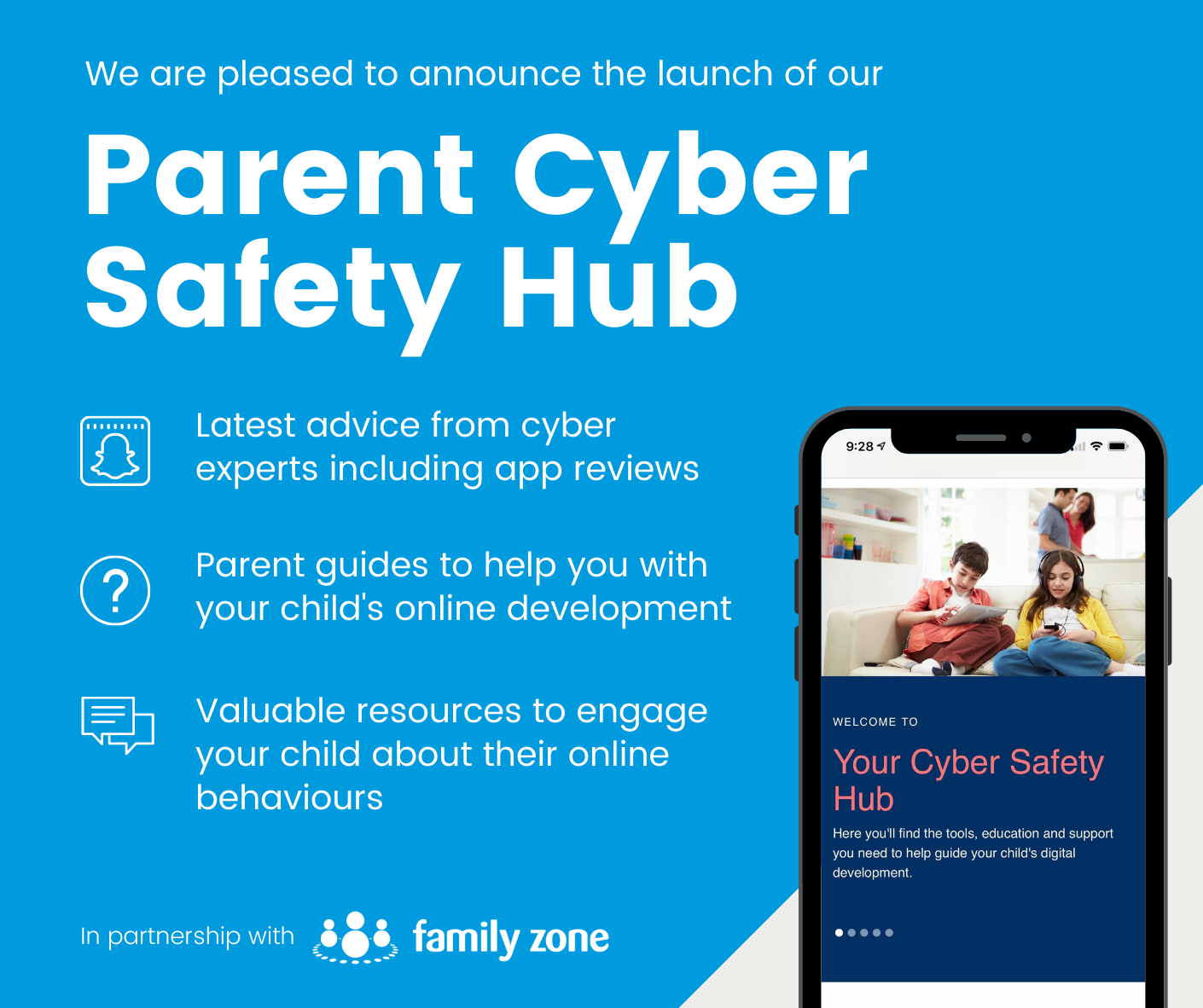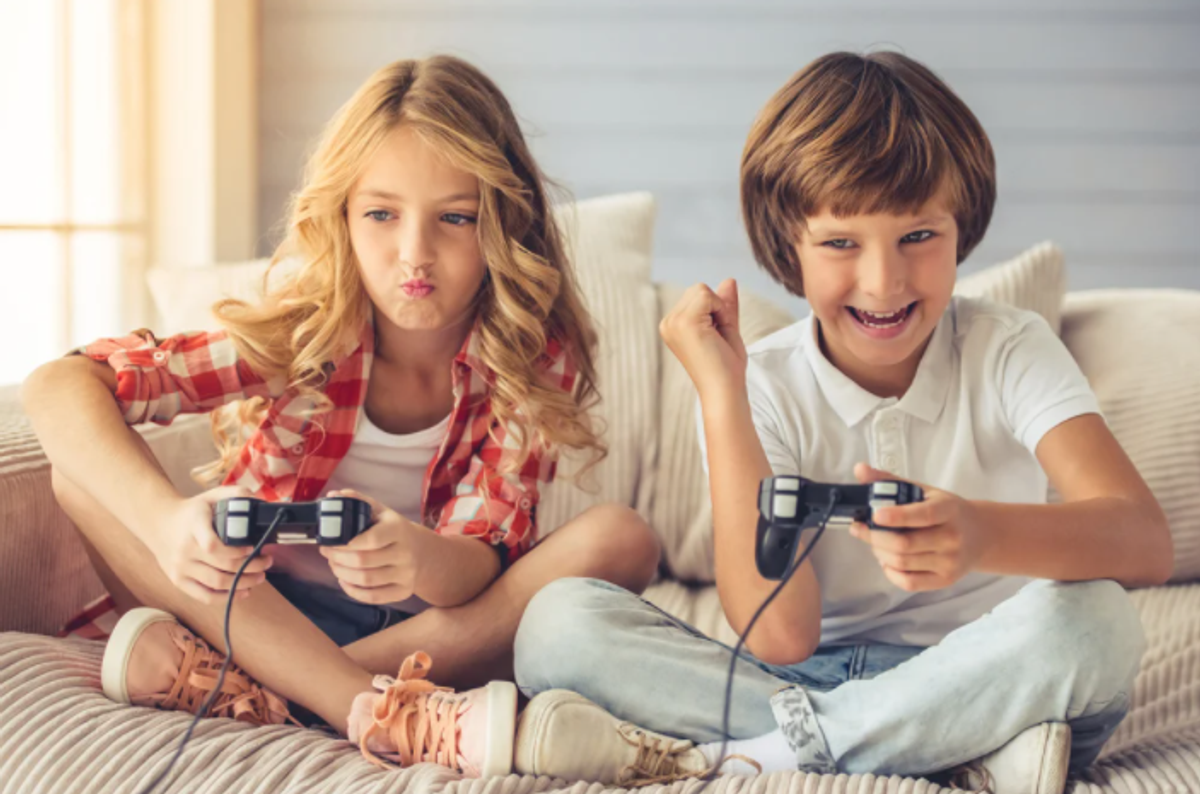Cyber Safety

Introducing our new Cyber Safety Hub
We are delighted to introduce you to a new resource made available to you through our partnership with Family Zone - our new school Cyber Safety Hub.
As you may already be aware, our partnership provides your family with access to the Family Zone tools to use at home with your children if you wish. The purpose of the Cyber Safety Hub is to complement those tools with practical guidance and information to further support you in engaging with your children in their digital development. These tools and resources also allow the school and parent body to work together on creating a holistic approach to guiding each student's online journey.
You can access the Cyber Safety Hub using the link below:
https://johnxxiii.cybersafetyhub.com.au/
About the Parent Cyber Safety Hub
The Cyber Safety Hub includes resources to help your family better understand the different Family Zone tools available to you and how to use them, plus access to regular cyber safety events to help you stay informed about the latest digital trends.
Also, the Cyber Safety Hub provides expert advice from leading cyber experts, ySafe, on the most pertinent issues and frequently asked questions around platforms like TikTok, Fortnite, Instagram, and more. There are app reviews with age and safety recommendations, along with a range of guides to help ensure healthy boundaries around screen-time & gaming, plus step-by-step instructions for using parental controls and filtering out inappropriate content.
We are very excited to be able to offer you this level of expertise and support. We look forward to working closely with you as we develop the cyber safety conversation within our school community.
Sure gaming can cause stress. But can it also relieve it?
Online gaming can definitely cause stress and anxiety. But the science shows it can also relieve stress and anxiety. So how does that work?
We all know about the dangers when gaming goes into overdrive. When kids (and sometimes their parents) become so obsessed with getting to that next level, their interest in life itself - real life itself - can take a serious hit.
But focusing on the negative can obscure an equally valid finding: which is that gaming can also be a powerful way to relieve stress and refresh us to re-engage. And that goes for kids and adults alike.
According to Australian Games Industry Statistics,
- 91 per cent of Australian households own a video game device.
- The average of a video game player in Australia is 34 years old.
- Nearly half of those playing video game players are female.
- Older Australians also love to play, with 42 per cent of those aged 65 and over identifying as gamers.
More than half of us played video games in 2020 - and the industry has seen a US$20 billion spike over the past 12 months. And yes of course a good part of the boom has been driven by pandemic restrictions. Yet experts are doubtful that the upward trend will reverse itself any time soon. Or ever, really.
The upside of escapism
Recent studies are suggesting that might not be such a bad thing. Are video games a form of escapism? Definitely. But so are most movies, boardgames, TV, books and plays - at least at some level. Just because a symbolic experience takes us “out of ourselves,” as we like to say, doesn’t make it dangerous. In fact, just the opposite.
A good game - just like a good book - can enlarge our experience, taking us to places that expand our imaginations, even encouraging empathy by symbolically putting us in the shoes of another. And the research is starting to bear all this out.
The good news on healthy gaming
A recent National Institutes of Health study, for example, found that gaming can reduce the symptoms of depression. (Granted, it also found violent, shooter-style games can cause adrenaline to surge. No surprises there!).
More evidence of the health benefits of certain types of gaming emerged from a study published in February in the journal Royal Society Open Science. At least for gamers playing simple games like Animal Crossing: New Horizons and Plants vs. Zombies, the authors concluded there was “a small positive relation between game play and affective wellbeing.”
"If we paint all digital play with this broad brush of addiction, a lot of kids are going to miss out on some of those benefits and they're going to be anxious about why something that they really enjoy and is positive in their lives is being called addictive and bad." Dr Marcus Carter, University of Sydney
A journal called Games for Health clearly takes a point of view on the matter. At the same time, it's a serious, peer-reviewed publication. A recent report reviewed the findings of 13 studies on the impact of gaming on stress, anxiety and overall mental health.
The review found “significant improvements” in mood and stress after subjects played games that were “simple, easy-to-use and casual.” Strikingly, these mental health outcomes were better than those observed after a passive break (watching TV, for example), surfing the web or participating in a relaxation activity.
University of Sydney gaming researcher Marcus Carter warns that too much emphasis on the risks associated with gaming can itself have negative consequences.
"If we paint all digital play with this broad brush of addiction, a lot of kids are going to miss out on some of those benefits and they're going to be anxious about why something that they really enjoy and is positive in their lives is being called addictive and bad," Dr Carter told the ABC recently.
Benefits for adults, too
And the support for that perspective is mounting - and not with respect to kids. Many gaming psychologists - yes, that’s a thing - see benefits for adult stress-relief and self-care as well. Psychologist Megan Connell, for example, recommends games like Stardew Valley for adults looking to unwind and relax.
“I find this game helpful as there are goals, yet there isn’t stress or pressure to get to all of the goals. There are also many different ways to play and there isn’t one that is better than any other.”
That freedom, flexibility and lack of pressured goals are qualities that may differentiate healthful games from riskier ones.
The bottom line? Gaming is, first and foremost, a form of play. And that’s an essential element for a balanced, creatively satisfying life for all of us.
Reference: https://www.familyzone.com/anz/families/blog/gaming-and-stress


